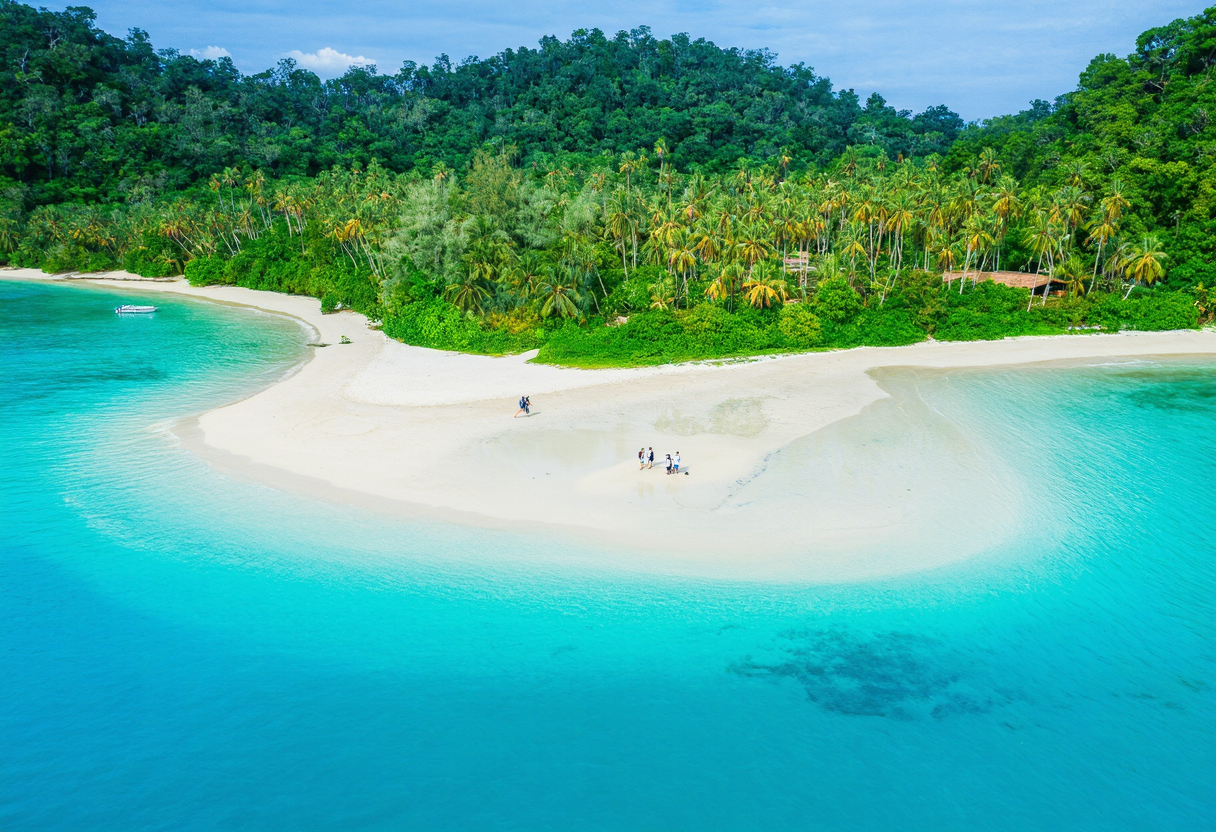Unveiling the Secrets of Island Tourism: A Journey into Coastal Splendor
Island tourism is not just a vacation choice; it's a lifestyle. From pristine beaches to lush landscapes, islands offer unique experiences that captivate travelers. This exploration unveils the intricacies behind island tourism, examining its impact on culture, economy, and the environment, while also considering the evolving traveler preferences and desires for authenticity.
Understanding the Allure of Island Tourism
Island tourism is a vibrant sector, capturing the hearts of millions each year. The allure of island destinations lies not only in their scenic beauty but in the cultural encounters they offer. Whether it’s the untouched beaches of the Caribbean or the volcanic landscapes of the Pacific, island tourism invites travelers to escape and explore. The unique ecosystems and communities of these islands contribute significantly to their charm. With local traditions and rich histories, islands become more than just vacation spots—they transform into cultural hubs. Additionally, island tourism often fosters a sense of adventure, drawing in those seeking both relaxation and excitement. It’s this dynamic that makes the popularity of island destinations soar.
The Economic Impact of Island Tourism
Island tourism significantly contributes to local economies, engendering both opportunities and challenges. The economic influx from visitors supports local businesses, from hotels to restaurants, directly impacting livelihoods. However, the dependence on tourism also poses risks, particularly in terms of economic sustainability. Over-reliance can lead to economic vulnerabilities during global fluctuations, as witnessed during recent pandemic-related downturns. However, with appropriate management, island tourism can create a balanced economic ecosystem, promoting job creation while preserving local cultures. The local economy's resilience hinges on tourism's capacity to adapt to changing global trends and visitor expectations. Sustainable practices within island tourism will ensure this sector thrives without compromising the environment.
Cultural Significance of Island Tourism
Island tourism provides a unique platform for cultural exchange, enriching both locals and visitors alike. Travelers often seek out authentic experiences, engaging with indigenous cultures and traditions. Festivals, cuisine, and handicrafts highlight the vibrant cultural tapestry of each island. This cultural tourism can foster a greater understanding and appreciation of diverse heritages. However, it's essential to approach cultural immersion respectfully. Misappropriation can occur if tourist behaviors undermine local customs. Thus, promoting responsible tourism practices is critical in nurturing these cultural exchanges. Island tourism must be framed as a two-way street where economic benefits equate to cultural preservation.
Adventure and Wellness: The New Frontiers of Island Tourism
Today’s travelers increasingly prioritize wellness and adventure in their tourism choices, a trend that island tourism readily accommodates. Many islands feature wellness retreats, offering yoga, meditation, and health-focused experiences amid serene environments. Simultaneously, adventure activities such as scuba diving, hiking, and water sports draw thrill-seekers to explore diverse marine and terrestrial ecosystems. The combination of relaxation and adventure enriches the travel experience, appealing to a wide demographic. With the rise of eco-tourism, many islands also promote sustainable practices, appealing to environmentally-conscious travelers. The evolution of traveler preferences influences how island tourism will adapt to meet growing demands.
Environmental Considerations in Island Tourism
The relationship between island tourism and the environment is complex and multifaceted. On one hand, tourism offers funds for conservation efforts, helping to preserve delicate ecosystems. On the other, unchecked tourism can lead to significant environmental degradation, threatening local wildlife and habitats. Thus, implementing sustainable tourism practices is critical in mitigating negative impacts. Engaging travelers in local conservation efforts—or even creating eco-conscious itineraries—can enhance the island experience while advocating for environmental stewardship. The commitment to sustainability in island tourism is essential for the continued preservation of these beautiful destinations.
Adaptation in the Wake of Global Changes
Island tourism faces unique challenges brought on by global events, such as climate change and pandemics. Rising sea levels threaten some island destinations, urging a reevaluation of tourism strategies. Simultaneously, shifts in traveler behavior demand flexibility and innovation. Developing resilience within the tourism framework is crucial for the longevity of island tourism. Emphasizing flexibility, destinations can attract a diverse range of visitors, adapting to the ever-changing landscape of global travel preferences. The evolution of island tourism must include considerations of health and safety, alongside environmental impacts, ensuring that these stunning destinations remain viable for future generations.
